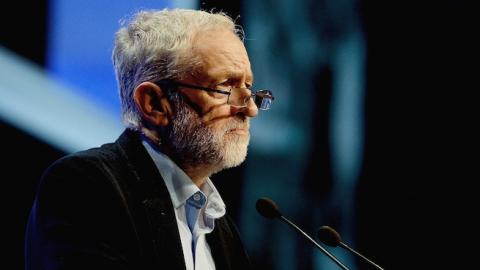It’s official: the leftist Jeremy Corbyn is the new leader of the Labour Party. The New York Times
Mr. Corbyn, 66, won the Labour leadership overwhelmingly and with the backing of thousands of newly recruited supporters, and in doing so delivered one of the biggest upsets in modern British politics.
His success underlines the extent to which European political structures have been destabilized by the aftershocks of the financial crisis in 2008, with voters increasingly attracted away from the political center ground, either to the socialist left or the nationalist right.
However, Mr. Corbyn’s program, which includes nationalizing energy and rail companies, has shallow support among fellow Labour lawmakers, a fact that suggests he may struggle to unite his party. Several senior party figures, including Emma Reynolds and Tristram Hunt, have already announced that they would not be serving in Mr. Corbyn’s team, though another, Hilary Benn, promised to support him.
Labour’s turn to the hard left is part of broader revival of the left across the Anglosphere. The NDP is running Alberta, and Bernie Sanders is ahead of Hillary Clinton in New Hampshire and Iowa. But whether the left turn within the parties will lead to national power is another question. By global standards, majorities in the English-speaking world have historically been relatively hostile to the hard left.
Corbyn’s victory in the Labour leadership election may be less about a Labour revival than about the conversion of a mass party with aspirations to govern the country into a smaller party of sectarian dissent. The collapse of Labour in Scotland, where it was the natural governing party, and where many of its most skilled and experienced national officials had their base, changes the nature of British politics in ways that have yet to be fully understood. Without a large bloc of Labour MPs from Scotland, it is pretty much impossible to envision a Labour majority in the British Parliament anytime soon.
If Scotland eventually secedes—and recent polls show that a new referendum would give a strong majority for independence—then Labour would likely be a permanently marginalized opposition party in a smaller UK. England, Wales and Northern Ireland as a political entity are considerably to the right of the current UK with Scotland. And if Scotland stays, uneasily, in the Union with the SNP as its new dominant party, Labour would only be able to form a government in coalition with the Scots Nationalists. That coalition is likely to be very unpopular with English voters, and fear of it was one reason the Conservatives won a surprise majority in the last UK election.
So Labour’s future is up for grabs. Before the Scottish wipeout, Labour leadership elections were about choosing the next potential Prime Minister of the UK. After the wipeout, the Labour election could be more about choosing a satisfying leader for a party of permanent opposition. A party leader who makes the hard left feel comfy and warm may in fact be the right choice for a party that sees its prospects of power fading away. If you are doomed to lose whatever you do, you might as well let your freak flag fly.
What will be interesting to see is what the ambitious group of people who have made their careers in Labour politics precisely because they want to govern one day will now do. Will they stick with Labour? Will they reach out to the battered Liberal Party to create a new kind of opposition to the Conservatives that could do well in England?
Interesting times.
















